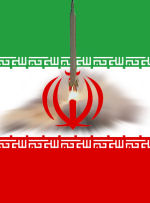Jan
19
Iran Sanctions Update
 Posted by Clif Burns at 9:23 pm on January 19, 2011
Posted by Clif Burns at 9:23 pm on January 19, 2011
 Category: Iran Sanctions
Category: Iran Sanctions
 Iran sanctions seem to be all in the news this week, particularly with respect to who is and who isn’t selling stuff to Iran.
Iran sanctions seem to be all in the news this week, particularly with respect to who is and who isn’t selling stuff to Iran.
- The Wall Street Journal ran an opinion piece that suggested that although Germany talks a good talk about Iran sanctions, it’s just that: talk. German exports to Iran increased by 5 percent between January and October 2010. In 2009, German authorized 16 exports of dual-use items to Iran, including protective suits that could be used in chemical weapons manufacture.
- The Swiss have imposed additional sanctions on Iran, now finally prohibiting military exports in accord with UNSCR 1747. The new sanctions also target items that could be used in nuclear proliferation. Additionally, financial transactions with Iran are limited by requiring approval for transfers over a certain amount, imposing new restrictions on insurance and reinsurance for Iranian companies, and requiring additional due diligence in dealings with Iranian banks
- Norwegian daily Aftenposten published a Wikileaks cable expressing concern by the State Department over Chinese exports to Iran of items that could be used in its missile program. The cable suggested that although the Chinese were doing a better job of controlling problematic exports to Iran, these efforts were being undermined by the Chinese federal government delegating some export decisions to provincial authorities which were more likely to put local economic interests ahead of interests in impeding Iran’s missile program.
- A fascinating article in Sunday’s New York Times details the likely participation of the United States and Israel in the Stuxnet worm which crippled around 900 centrifuges used by Iran in uranium enrichment. The worm targeted a Siemens device that controlled the centrifuges, causing them to spin at a high rate that destroyed the equipment while sending a “man in the middle” message to the control panel indicating that the centrifuges were operating normally, thereby preventing the Iranians from shutting the centrifuges down until it was too late. Sources that examined the code of the worm indicated that the attack would only occur if 984 controllers were linked together, thereby limiting the worm from hitting the wrong target.
Moral of the story: a well-targeted cyber attack probably has done more damage to Iran’s nuclear program than economic sanctions and export controls.
 Permalink
Permalink
Copyright © 2011 Clif Burns. All Rights Reserved.
(No republication, syndication or use permitted without my consent.)
3 Comments:

Actually, as if the whole Judy Miller/WMDs in Iraq thing wasn’t enough to warn us not to take what the NY Times says too seriouly, there’s a new report that says the Stuxnet worm was not all it was cracked up to be.
http://threatpost.com.mx/en_us/blogs/stuxnet-authors-made-several-basic-errors-011811
Some speculate that the recent spate of articles praising the Obama administration’s “success” in dealing with Iran to be nothing more than an effort to manufacture a success in order to vindicate and continue what has actualy been a failed policy, so long as it pre-empts an actual engagement with Iran which some elements in the US find objectionable.

@Hass. I don’t think the Kapersky “report” is that convincing. First, “errors” in the code don’t overcome the additional corroboration in the NYT article, particularly where there is evidence that Stuxnet was successful. Second, non-fatal errors could have been seeded into the code to lead to precisely the conclusion that the Kapersky “experts” reached here.

Whatever the efficacy of multi-lateral dual-use export controls or a cyber worm, there clearly is no evidence whatsoever that the total export embargo on Iran (or Cuba or Sudan or Syria) has deterred or delayed or adversely affected Iran or any other embargo target one iota. The purpose of these total export embargoes is not to affect the targets, but to pander to domestic interest groups that are adverse to the target country. Clinton’s imposition of a total export embargo on Iran was not, in fact, a response to any particular threat from Iran; but, instead was a pre-election response to then Senator D’Amato’s proposed legislation which itself pandered to special interest groups adverse to Iran which groups are known for contributing large sums of money to campaigns.
Of course, the problem is not the loss of direct sales to the target countries; but rather, the peculiar illogic at OFAC and BIS that extends these symbolic embargoes to include not only dirext exports but also re-exports and foreign exports of foreign-made products containing U.S. origin goods or technology regardless of its classification. (Keep in mind that there is no de minmis exception for exports to foreign producers who sell their product to the Iranian petroleum or petro-chemical industry). Given that purchase of U.S.-origin goods and technology requires submitting to U.S. unilateral extra-territorial export controls, it is no wonder that the U.S. has become the supplier of last resort.
It is time for the special interest groups that demand these unilateral export embargoes to realize that, in no small part thanks to them, the United States no longer has the economic strength to afford such indulgences. The only people these special interest groups have succeeded in hurting are American workers.
 Iran sanctions seem to be all in the news this week, particularly with respect to who is and who isn’t selling stuff to Iran.
Iran sanctions seem to be all in the news this week, particularly with respect to who is and who isn’t selling stuff to Iran. Permalink
Permalink

 Posted by
Posted by  Category:
Category: 

